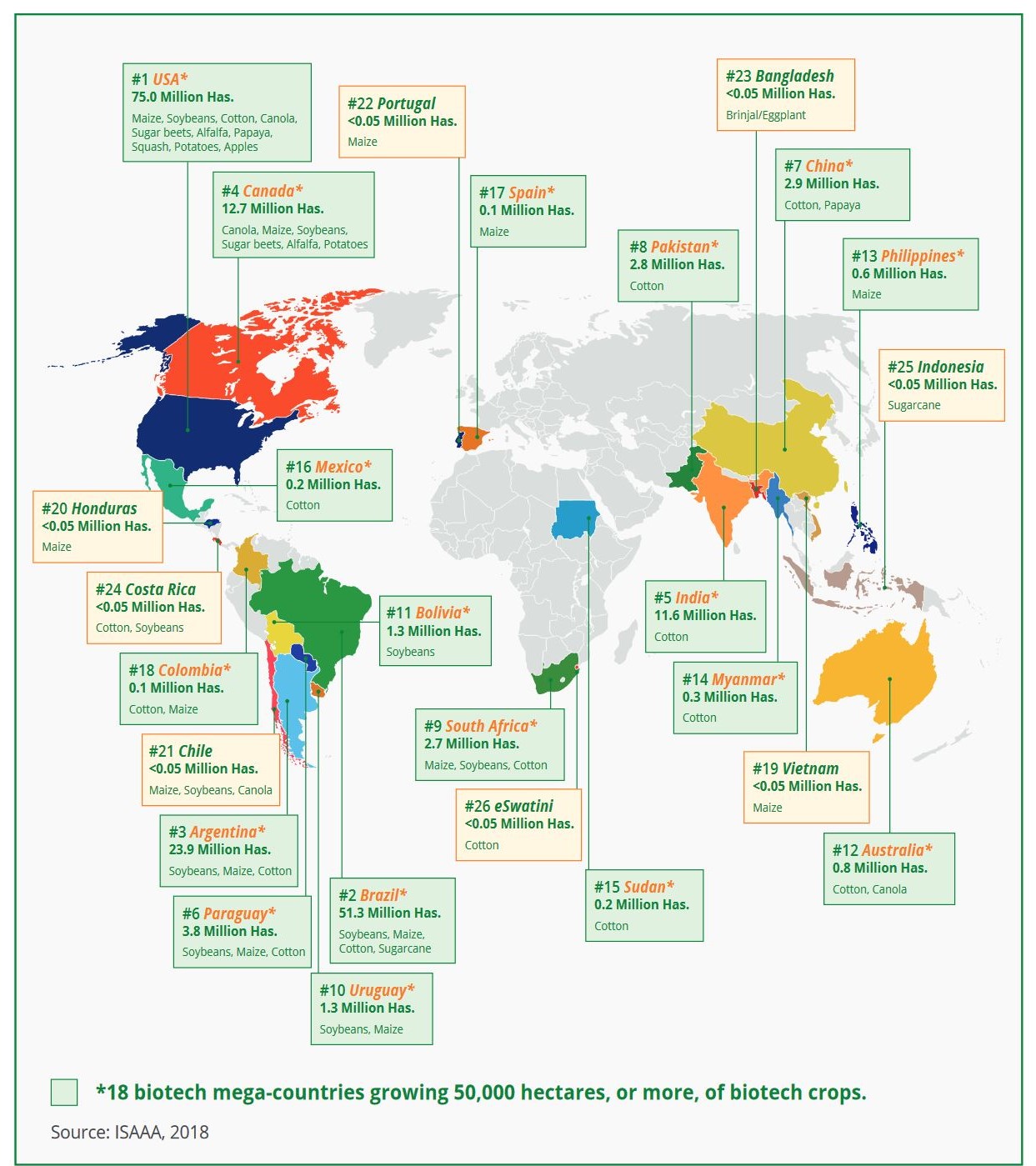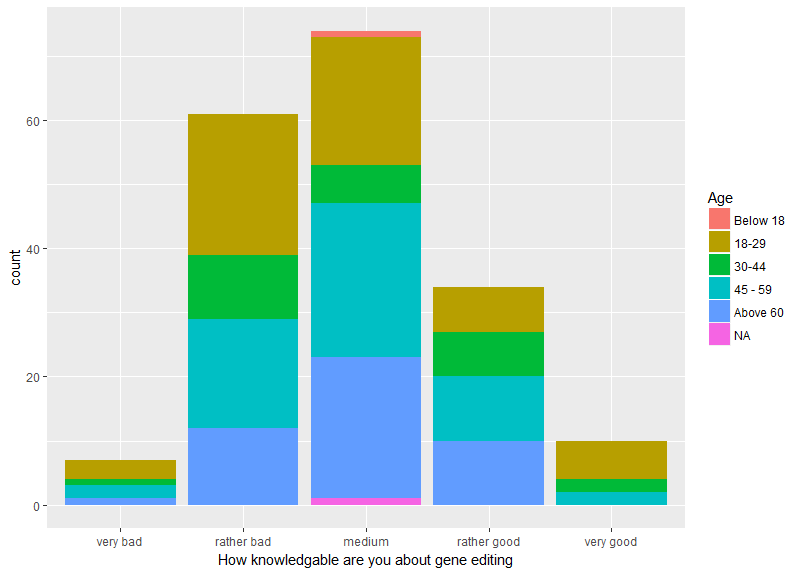|
|
| Line 584: |
Line 584: |
| | <br> | | <br> |
| | | | |
| − | As far as gender is concerned, most of the participants rated themselves in the criteria as | + | As far as gender is of interest, most of the participants rated themselves in the criteria as |
| | "rather bad" and "medium". Men consider themselves to be better informed than women. Especially in | | "rather bad" and "medium". Men consider themselves to be better informed than women. Especially in |
| | the | | the |
| Line 618: |
Line 618: |
| | In the category “age”, the average self-assessment is also "rather bad" and"medium". However, | | In the category “age”, the average self-assessment is also "rather bad" and"medium". However, |
| | younger people (18-29) generally considered themselves to be better informed than older people. A | | younger people (18-29) generally considered themselves to be better informed than older people. A |
| − | problem is that the older generation mayhave more difficulty reaching information.<br> | + | problem is that the older generation may have more difficulty accessing information.<br> |
| | <br> | | <br> |
| | It is also noticeable that the participants have a positive attitude towards genetic | | It is also noticeable that the participants have a positive attitude towards genetic |
| | engineering when they are better informed. This shows that there is not enough information on | | engineering when they are better informed. This shows that there is not enough information on |
| | genetic | | genetic |
| − | engineering and that it does not reachthe population.<br> | + | engineering and that it does not reach the population.<br> |
| | <br> | | <br> |
| | The first part of our study reveals two problems: bad accessibility of information to the older | | The first part of our study reveals two problems: bad accessibility of information to the older |
| − | generation creates a discrepancy between the level of knowledge between younger and older people. As | + | generation creates a discrepancy between the level of knowledge of younger and older people. As |
| | a | | a |
| | result, older people feel less informed, which in turn leads to skepticism towards genetic | | result, older people feel less informed, which in turn leads to skepticism towards genetic |
| Line 634: |
Line 634: |
| | reach older people more effectively.There is also a problem with the flow of information in general, | | reach older people more effectively.There is also a problem with the flow of information in general, |
| | as | | as |
| − | people are obviously better attuned to genetic engineering when they know more about it. Ingeneral, | + | people are obviously better attuned to genetic engineering when they know more about it. In general, |
| − | there is a need for better information on the subject and more discussionat political level.<br> | + | there is a need for better information on the subject and more discussions at a political level.<br> |
| | <br> | | <br> |
| − | We then asked whether the participants considered genetic engineering in plants,animals and humans | + | We then asked whether the participants considered genetic engineering in plants, animals and humans |
| | to be | | to be |
| | ethically justifiable.<br> | | ethically justifiable.<br> |
| | <br> | | <br> |
| − | Most people had a positive attitude towards plants. Here, many people probably recognize the | + | Most people had a positive attitude towards plants. Here, many people probably recognized the |
| | potential, also with regard to the 2050 food problem or resistance to pests.<br> | | potential, also with regard to the 2050 food problem or resistance to pests.<br> |
| | <br> | | <br> |
| | Surprisingly, many participants are more likely to agree with genetic engineering in | | Surprisingly, many participants are more likely to agree with genetic engineering in |
| − | humans than in animals. Most people probably think of thepotential of genetic engineering to fight | + | humans than in animals. Most people probably think of the potential of genetic engineering to fight |
| | serious diseases and thus cure diseases where traditional treatment is not sufficient. In addition, | | serious diseases and thus cure diseases where traditional treatment is not sufficient. In addition, |
| | when | | when |
| − | it comes to geneticengineering on animals, some people may think of animal experiments, which many | + | it comes to genetic engineering on animals, some people may think of animal experiments, which many |
| | consider to be reprehensible. In addition, it is potentially possible to ask people before such | | consider to be reprehensible. In addition, it is potentially possible to ask people before such |
| | interventions, while animals have no voice. Our results confirmed us conducting our panel discussion | | interventions, while animals have no voice. Our results confirmed us conducting our panel discussion |
| | to | | to |
| | create another source of information and to inspire as many people as possible to think about it. We | | create another source of information and to inspire as many people as possible to think about it. We |
| − | hope to be able to educate and hope that the potential of genetic engineeringwill be recognized by | + | hope to be able to educate and hope that the potential of genetic engineering will be recognized by |
| | the | | the |
| | general public.<br> | | general public.<br> |
| Line 668: |
Line 668: |
| | </div> | | </div> |
| | <figcaption style="max-width: 1275px"> | | <figcaption style="max-width: 1275px"> |
| − | Fig.4 - Attitude towrads gene editing in plants.               | + | Fig.4 - Attitude towards gene editing in plants.               |
| |                         | |                         |
| |               | |               |
| − | Fig.5 - Attitude towrads gene editing in | + | Fig.5 - Attitude towards gene editing in |
| | animals.                           | | animals.                           |
| |             | |             |
| |         | |         |
| | Fig.6 - | | Fig.6 - |
| − | Attitude towrads gene editing in humans. | + | Attitude towards gene editing in humans. |
| | </figcaption> | | </figcaption> |
| | </figure> | | </figure> |


















